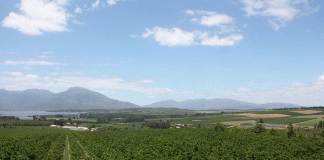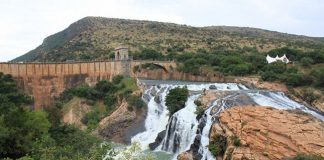Nearly 70% of Mpumalanga’s arable land is mined or prospected and the resultant loss in maize production will lead to an increase of R300/t in the maize price. Gerhard van der Burgh, scenario planner at the Bureau for Food and Agriculture Policy (BFAP), explained that this increase would be the price buyers had to pay if mining activities in Mpumalanga continued at the current rate. “We are looking at a reduction of half a million tons of maize. This will have a severe ripple effect on food prices.”
Cost affects food security
Dr Pieter Mulder, deputy agriculture minister, said that food insecurity in SA was not caused by a lack of availability, but by a lack of affordable food. “Pressures associated with mining and urban infrastructure result in reduced food production and higher prices. “Government’s shift in investment from agriculture to other sectors has resulted in the loss of agricultural land. This, despite the fact that scientific evidence shows that investing in agriculture is the most effective strategy to combat poverty and promote long-term sustainability,” said Mulder.
He conceded that mining was invaluable to the country as it made up 18% of the GDP, but said that custodianship and stewardship were needed to minimise the negative impact that mining had on societies and farming. Thibedi Ramontja, director-general of the Department of Mineral Resources, said amendments to the Mineral and Petroleum Resources Development Act (MPRDA) would ensure that the environment was looked after. “Amendments include making mine owners responsible for land rehabilitation and holding them liable for damage to the environment, even after the issuing of closure certificates.
“We believe that the MPRDA Draft Amendment Bill of 2012 will better serve those affected by mining. Although our country needs export energy to address social problems, we must promote mining and agriculture,” said Ramontja. However, delegates were unconvinced about the ability of legislation to keep miners in line as there was a lack of enforcement capacity.
Nikisi Lesufi, senior executive at the Chamber of Mines, said laws and amendments were futile if the state did not have the teeth to enforce them. “We need to join hands and make sure the state is empowered to exercise those laws.” Derek Light, an attorney representing landowners against fracking in the Karoo, said that although laws were being amended, implementation was the real issue. “The minerals department is naturally biased towards mining.” Light said that because of this the legislation would not be able to protect the environment or agriculture.
“The fracking debate has highlighted the inadequacies of mining legislation, so at least SA will have better legislation for mining as a whole.” Delegates expressed a need for a standardised method of land rehabilitation so that agriculture can continue after mining. Van der Burgh said that the current system of rehabilitation was not viable. “Ask anyone who is trying to farm rehabilitated land. The fertiliser costs are massive and it’s just not feasible. Based on our research, all rehabilitated underground mines will collapse within 100 years. But this is not taken into account when environmental impact assessments are done.”
He noted that the problem with drawing up norms and standards for rehabilitation was quantifying a 30-year rehabilitation process at the beginning of a mining project. Van der Burgh said that the most severe impact of mining on the environment was acid mine drainage, which polluted water. “Communities around mines are at risk because heavy metals carried in water and soil filter through to food crops and enter the food chain. “Air pollution, which includes sulphur dioxide from blasting, will also reduce yields,” Van der Burgh said.
Limit mining
Ernest Pringle, president of Agri Eastern Cape, said that while he understood the importance of mining coal, it should be limited. “Coal should be declared a strategic mineral and all exporting should be banned so that we are assured of cheaper electricity. We can then limit the amount of coal mining so that it does not affect agriculture negatively.” But Lesufi explained that exports were needed to finance expansion. “We need resources and expertise in order to get the coal out of the ground. And for that we need financing.”











